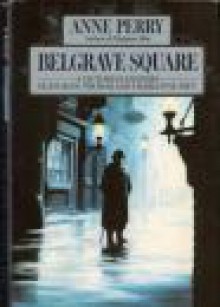
"Anne Perry explains herself in her writing, in the stories of flawed protagonists who fail the world and themselves but can transcend their past to find forgiveness. They battle their history, the corrupting influences of the world and their own fallibility and self-doubt. It is a familiar literary conceit that, for Anne, has become a default position. Its suspense and resolution are perfectly suited to crime fiction. She writes prodigiously, and with imagination and penetrating intelligence. And until the world finally 'gets it', and she can forgive herself, it is a story she will tell over and over again."
That's the last paragraph of Joanne Drayton's sympathetic literary biography of Anne Perry, born in 1938 as Juliet Hulme, who in her teen years, along with her best friend, murdered that best friend's mother; as Anne Perry, beginning in the 1970s, she has published dozens of novels, mostly murder mysteries, to general acclaim.
Those looking for a straightforward "true crime" narrative will likely be put off by the extensive - and, I think, intelligent - analysis of Perry's writings which is interleaved with the story of her life. Indeed, Drayton conducts a large part of her search for Anne Perry in the work itself, though she appears to have managed to have had some fairly privileged personal access as well, in the small Scottish village where Perry was living at the time of this biography. Nonetheless, whether Perry is just naturally reserved, or whether she feels she has given everything she can give to the various biographical writings and documentaries about her (or both), I get the sense that Drayton did not obtain any very overwhelming insights from the personal contact. Under the circumstances, it makes sense to seek understanding from the more oblique way in which Perry has herself sought to express and understand herself, even while acknowledging that in fiction she can, and will have, shaped and controlled that understanding.
Drayton also spoke extensively to the various people who have been involved with publishing Perry over the years, and from this we get not just their personal perspectives, but also - for bibliophiles like me, anyway - some interesting insights into how the modern book publishing industry operates and has operated for the last 40 years or so.
I found this well worth reading (and particularly so since I've also read a fair number of Perry's works, though far from all). I've decided to look into Drayton's other biography of a notable New Zealand-born crime novelist, Ngaio Marsh.


 Log in with Facebook
Log in with Facebook 








